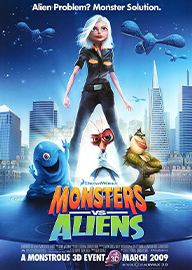시간 AKA Time
- 7.1
- Mystery
- 2006
- 1h 37m
- 14+
A South Korean psychological thriller directed by Kim Ki-duk that delves into the complexities of love, identity, and transformation. The film follows a woman who undergoes drastic changes in her appearance to test her partner's fidelity, leading to a series of emotional and psychological consequences. With its intense drama and thought-provoking narrative, "Time" explores themes of obsession and self-perception, offering a unique and artistic take on the challenges of modern relationships. The film's unconventional storytelling and deep emotional depth make it a critically acclaimed work in South Korean cinema.













Comments
0Reviews
0Summery
1Please sign in to comment.
Please sign in to review.
"Time" is a South Korean psychological drama directed by Kim Ki-duk, renowned for his thought-provoking and often controversial films. Released in 2006, "Time" explores themes of identity, transformation, and the impact of appearance on self-worth and relationships. The film stars Ha Jung-woo and Park Ji-ah as the central characters, delving into the complexities of love and personal reinvention.
The narrative centers on a young woman named Seh-hee, played by Park Ji-ah, who becomes increasingly dissatisfied with her appearance and her relationship with her boyfriend, Ji-woo, portrayed by Ha Jung-woo. Feeling that her physical appearance is causing a rift between them, Seh-hee undergoes a dramatic transformation by getting extensive plastic surgery. She changes her identity, including her name, and reintroduces herself to Ji-woo as a new person, hoping to rekindle the romance and restore their relationship.
The film intricately examines the psychological effects of Seh-hee's drastic decision. As she reinvents herself, the story delves into themes of self-esteem and the extent to which external changes can influence internal feelings. The emotional and psychological tension escalates as Ji-woo grapples with the disorienting presence of his transformed partner. The dynamic between them shifts dramatically, reflecting the struggle between genuine connection and superficial change.
Kim Ki-duk's direction is marked by its contemplative and minimalist style, using sparse dialogue and evocative imagery to convey deeper emotional and philosophical themes. The film's cinematography emphasizes the stark contrasts between Seh-hee's former and new selves, using close-ups and careful framing to capture the nuances of the characters' experiences. The visual style, combined with a haunting and atmospheric score, underscores the emotional intensity of the narrative. "Time" is not just a commentary on physical appearance but also an exploration of the nature of identity and the personal insecurities that drive individuals to seek validation through external means. The film poses questions about the authenticity of love and relationships when altered by superficial changes. It challenges viewers to reflect on the impact of societal pressures and self-perception on personal relationships.
The film’s resolution is both thought-provoking and unsettling, as it forces characters and viewers alike to confront the reality of their choices and the consequences of attempting to escape one's identity. The ending leaves a lasting impression, highlighting the inherent flaws in trying to transform oneself in pursuit of happiness and acceptance.
Overall, "Time" is a compelling and introspective film that addresses profound questions about human nature and the quest for personal satisfaction. Kim Ki-duk’s exploration of identity, love, and self-worth through the lens of plastic surgery provides a gripping and emotional narrative that remains relevant and impactful. The film's unique approach and thematic depth make it a significant entry in the realm of psychological drama.